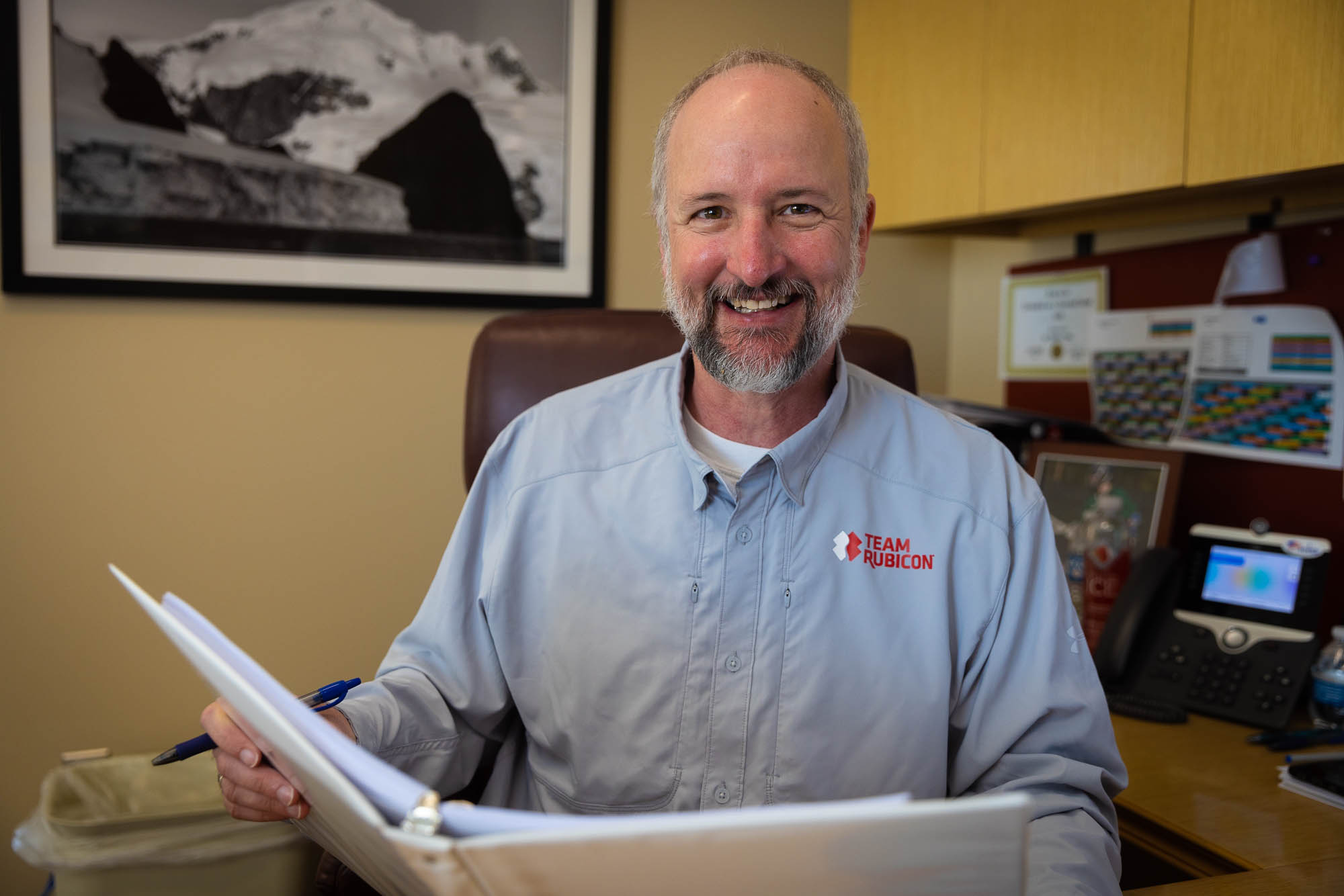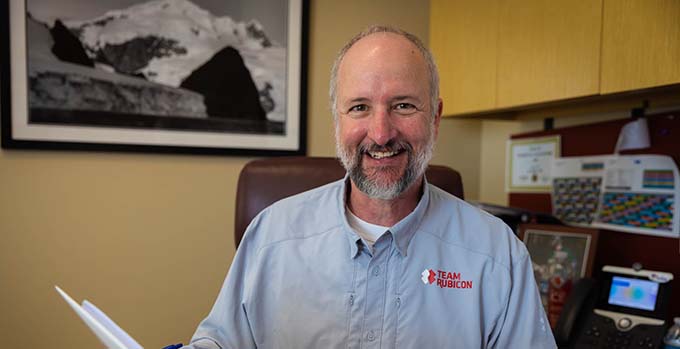On Friday Feb. 25, the day after Russia launched its all-out attack on Ukraine, University of New Mexico physician Matthew Wilks was contacted by Team Rubicon, a non-governmental disaster relief organization and asked to head to Europe.
By Monday, Wilks, chief medical officer at UNM Sandoval Regional Medical Center in Rio Rancho, found himself on a plane bound for Poland.

This was a different role for me. Usually, I wait until the advance team gets things figured out and decides if there is a mission, and where that would be
“This was a different role for me,” said Wilks, an emergency physician who in the past has deployed with Team Rubicon on missions in Puerto Rico, Haiti and Africa. “Usually, I wait until the advance team gets things figured out and decides if there is a mission, and where that would be.”
In this case, Wilks and several Ukrainian-speaking colleagues were the advance team, charged with hammering out agreements with local governments to provide medical care to the thousands of refugees fleeing to the relative safety of western Ukraine to escape the fighting.
After spending a few days in Poland trying in vain to meet with health ministry and United Nations officials coping with an enormous influx of refugees, the team crossed over into Ukraine, finding lodging in a university dormitory in the western city of Lviv.
“I was in Lviv and meeting with hospital administrators to find out where their perceived need was,” Wilks says. “One of the important things about the international team with Team Rubicon is we don’t do work in foreign countries until we get permission.”
The internally displaced refugees had seen their entire lives upended when the Russian invasion drove them from their homes, Wilks said. Many fled with little more than the clothes on their back.
“There were a lot of behavioral health needs, mental anguish – things like that,” he said. People needed bereavement counseling, but many, who had chronic medical conditions, also needed medications to treat their diabetes, hypertension and elevated cholesterol.
The next step was to find where there was a need for the type of medical aid that Team Rubicon provides. It is certified by the World Health Organization as a completely self-contained emergency medical Type I (EMT I) mobile team, Wilks said.
“We can treat up to 50 patients per unit,” Wilks said, adding that a EMT I mobile team has two units. The teams bring with them tents, equipment, medical supplies and food, so they can operate outdoors or in local schools or other public buildings.
“The other thing I needed to set up was transfer agreements and transfer plans,” Wilks says. “We would certainly come across people that we couldn’t manage in the field and we needed to know where to send them.”
Life in Lviv was deceptively normal-seeming, with shops open and people out and about, but the calm was interrupted from time to time by air raid sirens, and everyone would head to the dormitory basement for shelter, he said. “At least in Lviv, all of the infrastructure was still intact. We could write a prescription and go out and fill that at the pharmacy.”
Still, the veneer of calm was easily disturbed. During their stay a Russian missile hit the city’s airport, about three miles from where they were staying.
“I never felt at risk,” Wilks said. “I probably should have, but I didn’t.” Then again, there were ubiquitous security checkpoints manned by soldiers with machine guns, “Which makes you realize this is a war zone.”
Wilks also had a chance to converse with local residents, who spoke about how they were coping with the sudden onset of war. “They were telling stories of their families, where they were sending their wives and their kids out of the country,” he says.
The Ukrainian college students who hosted the foreign health team and worked as translators provided their services gratis, he said. “They were exceptional,” Wilks said. “We tried to pay them. They would not accept any money. They were pretty adamant about it.”
Wilks and his colleagues headed back to the U.S. after about 2 ½ weeks, replaced by a Type I team. “They quickly set up at a couple different locations,” he said. Team Rubicon has been asked to stay on through the end of May, and will rotate different teams in for three-week stints. “They’ll stay as long as they feel they’re being useful.”
A ceasefire has proved elusive thus far, but even if the fighting stops, “There’s going to be another refugee crisis of people coming home and not having anything to come back to,” Wilks said. “It’ll take a Marshall Plan to rebuild.”
